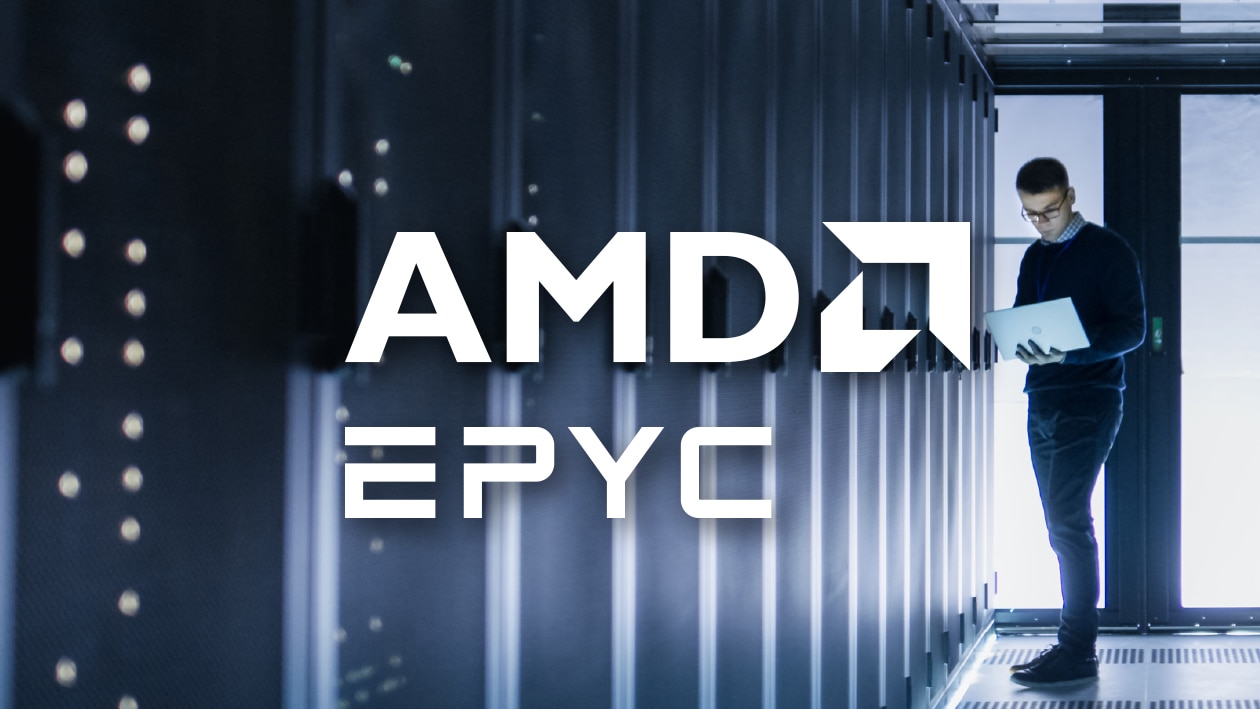Performance you need, at a price you can afford
You’re undoubtedly familiar with the AMD EPYC™ processor family; a range of server processors that offer uncompromising performance and possibility for enterprise applications across a variety of markets and needs. Together, they represent some of the most compelling options for business customers today across enterprise, cloud, edge, and HPC needs.
But even with such a broad range already available, there are still challenges that new AMD EPYC processors can solve, which is why AMD is now introducing the AMD EPYC™ 4004 Series processors.
Getting Started with Server Infrastructure
Extending the established high-performance, highly-efficient AMD “Zen 4” core architecture into a new range that targets customers looking for an expanded range of entry-level systems, AMD EPYC 4004 Series processors are the ideal solution for growing small to medium size enterprises, hosted IT services customers, and those who are looking to develop their own local server infrastructure.
These new streamlined single-socket processors concentrate on three key elements, with a focus to deliver strong general-purpose server workload output: performance, ease-of-use, and affordability.
Performance That Solves Problems
When it comes to performance, AMD EPYC 4004 Series processors deliver, offering up to 16 AMD ”Zen 4” cores, 32 threads, an L3 cache of 128MB, DDR5 memory support, and 28 PCIe® 5 lanes,1 enabling SMB customers to achieve the results they want.
This new AMD EPYC processor series also offers new lower core count offerings and thermal design point ranges as low as 65W, meaning customers can choose what level of performance they require while keeping an eye on costs and efficiency.
Easy-to-Implement, Easy-to-Use Servers
Based on the tried-and-tested AM5 socket, AMD has focused on helping ensure that customers looking to implement AMD EPYC 4004 processor-based servers will enjoy a streamlined setup and management experience. That’s thanks to a focus on validated server OS software, standards-based manageability, essential security capabilities, and scalability that allows for a robust IT infrastructure that can easily scale with small businesses as they grow.
Thanks to this ease of implementation and affordability, AMD EPYC 4004 Series processors enable SMBs to free themselves from clunkier, less-optimal solutions such as using traditional PCs as “servers” or running their business on aging hardware. As modern applications and services become pervasive, rich, and even AI-augmented, it’s time for smaller businesses to adopt the type of advanced computing that AMD EPYC 4004 processor-based servers afford them.
Attractively Priced
Great server performance doesn’t have to come at a high cost. AMD EPYC 4004 Series processors are designed to enable easy-to-purchase and affordable-to-own servers. The combination of impressive performance and streamlined platform componentry means OEMs can offer cost-efficient business-relevant configurations. For customers, that means the right level of IT for their applications, and fewer concerns that they’re over-investing in technology.
That said, purchasing is just the beginning; AMD EPYC 4004 processor-based servers offer great performance for the money, especially on important tasks. Plus, with efficient memory and I/O features, they deliver impressive performance without breaking the bank.
* Processor with 3D V-Cache™ technology
Please contact your AMD representative or visit amd.com to learn more about these new AMD EPYC processors and the broader AMD EPYC processor family.
AMD Arena
Enhance your AMD product knowledge with training on AMD Ryzen™ PRO, AMD EPYC™, AMD Instinct™, and more.
Subscribe
Get monthly updates on AMD’s latest products, training resources, and Meet the Experts webinars.

Related Articles
Related Training Courses
Related Webinars
Footnotes
- Some systems use 4 lanes to support connecting and additional I/O chipset, leaving 24 lanes available for other I/O connections.
- Some systems use 4 lanes to support connecting and additional I/O chipset, leaving 24 lanes available for other I/O connections.








